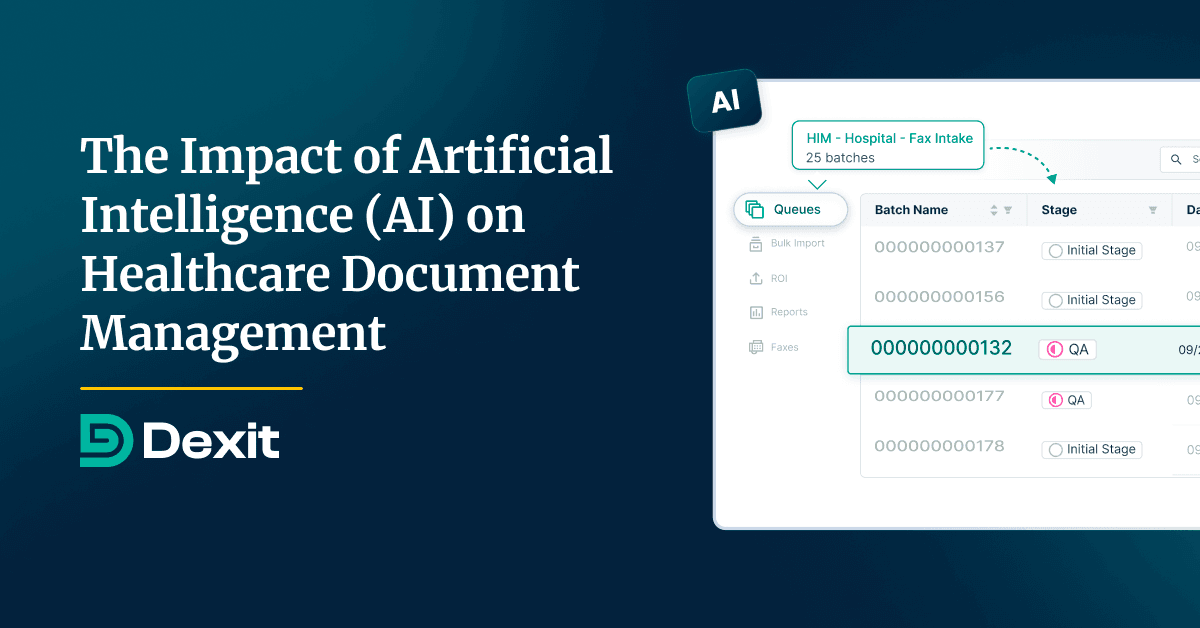
The Impact of Artificial Intelligence (AI) on Healthcare Document Management
The advent of Artificial Intelligence (AI) has signaled a revolutionary shift across various sectors, with the …

In the ever-evolving landscape of healthcare document management, customization is the key to efficiency. Health Information Management (HIM) leaders often grapple with customizing their existing systems when adopting new document management software. This is where Dexit emerges as a game-changer. Dexit is a HIPAA-compliant healthcare document management system that has been curated by seasoned Healthcare Information Management leaders who have first-hand experience with the existing healthcare document management challenges in the industry.
One of the most distinctive capabilities of Dexit is that it allows users to tailor their systems effortlessly, making the software extremely user-friendly. In today’s blog, we’ll delve into the details of Dexit’s system customization capabilities and what makes it unique compared to other healthcare document management software in the industry.
Most of the document management software in the industry present significantly complex system customizations, if any at all. These customizations demand extensive scripting knowledge, making it challenging for users without coding expertise to adapt the software to their specific needs. It forces organizations to submit to the rigidity of the software, compromising efficiency and productivity. The time and resources spent on manual interventions due to these complexities induce unnecessary inefficiencies in the document management processes.
Dexit offers an intuitive and accessible system customization experience. One of the standout features of Dexit is its ability to tailor itself to your system’s workflow, not the other way around. The conventional approach often forces healthcare organizations to adapt their processes to fit the rigid structure of the software. Dexit, however, puts you in charge, allowing you to shape the system according to your unique requirements. For example, whether you prefer converting batches into documents first, then indexing, or handling both simultaneously, Dexit gives you the autonomy to define your system rules.
Below are some images that show how the user can customize their work process using Dexit.
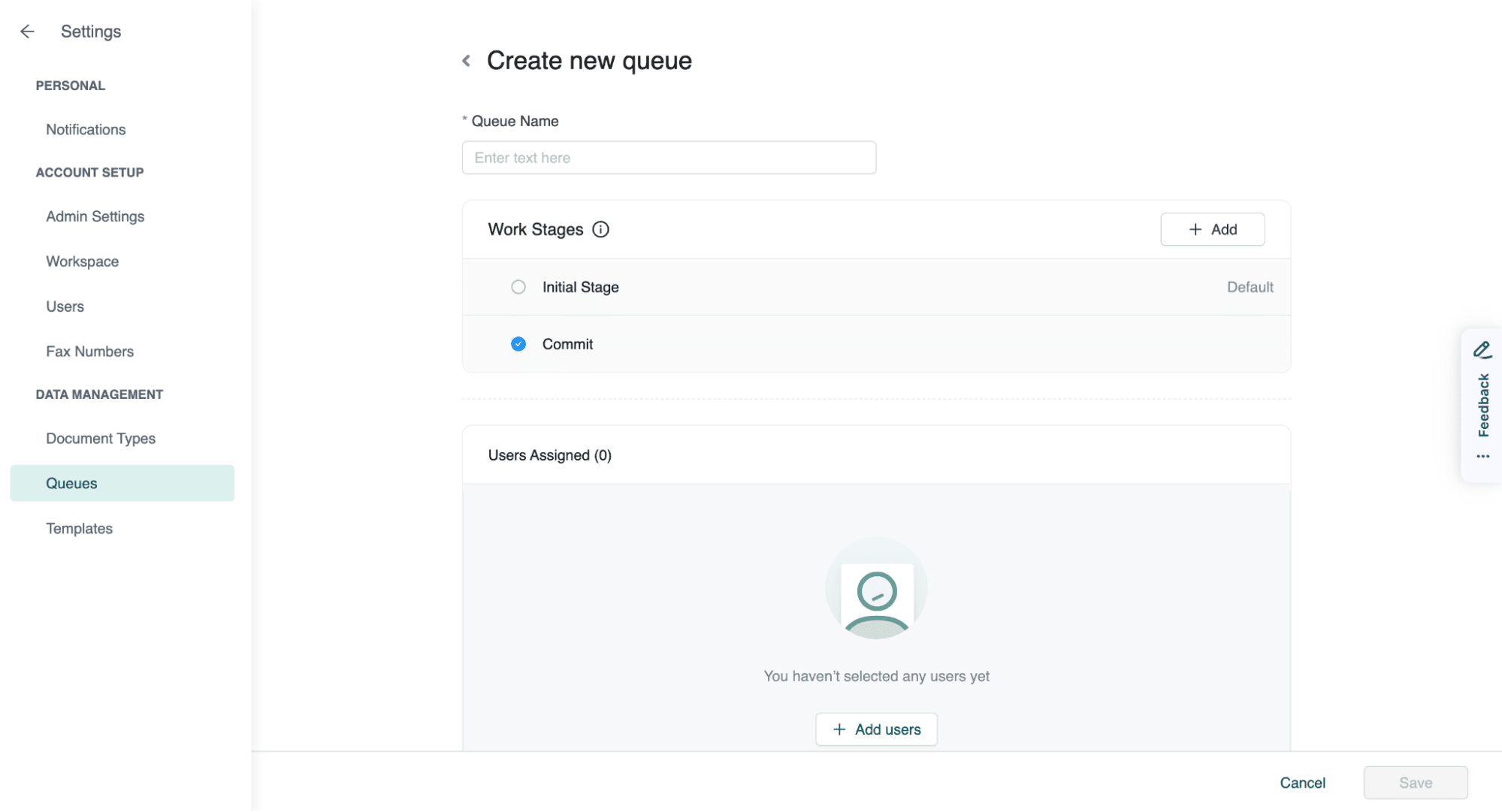
Image 1: You can create and define stages in a particular work queue, as well as add people to the queue.
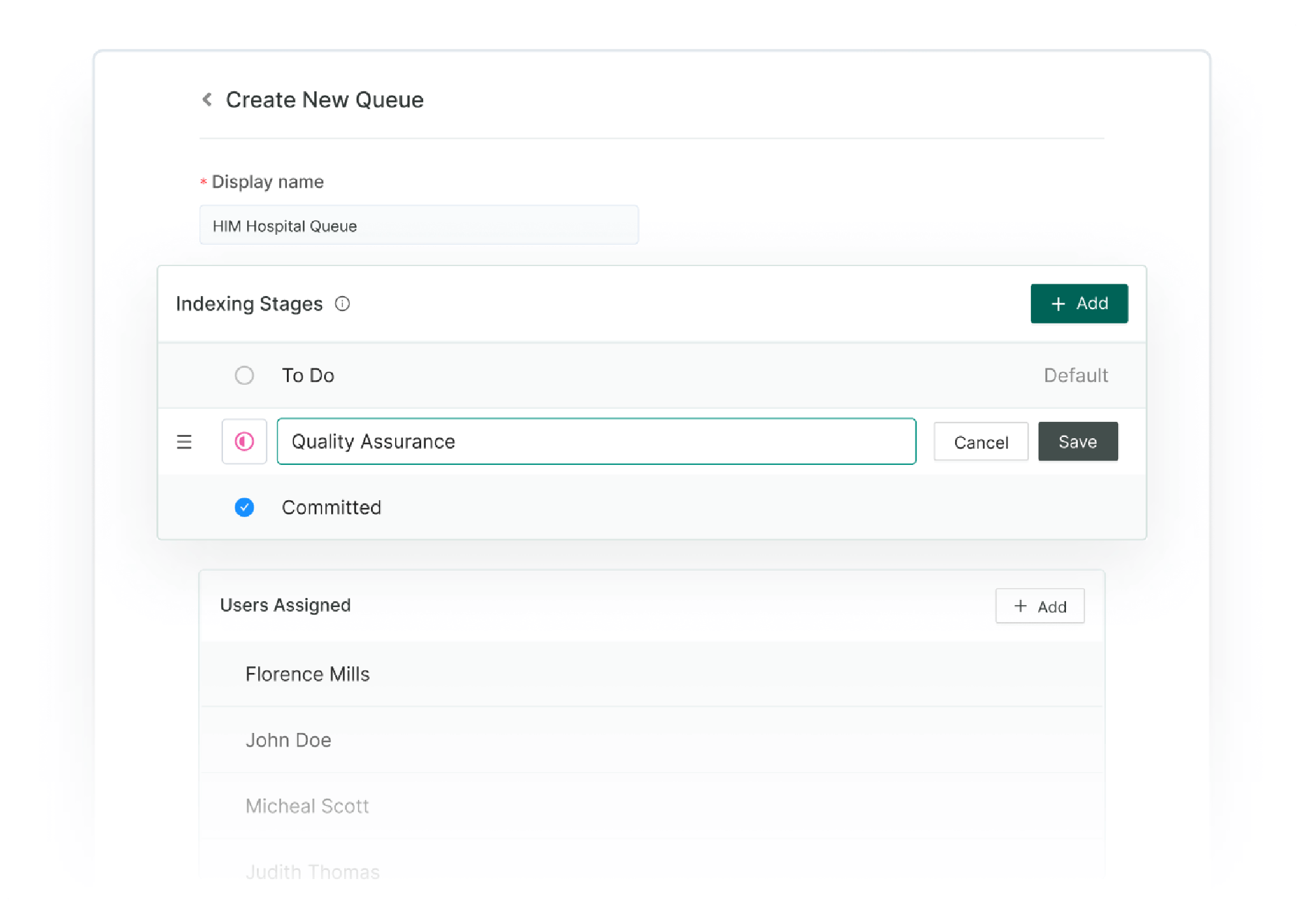
Image 2: You can add intermediate stages between your initial and final (committed) stage.
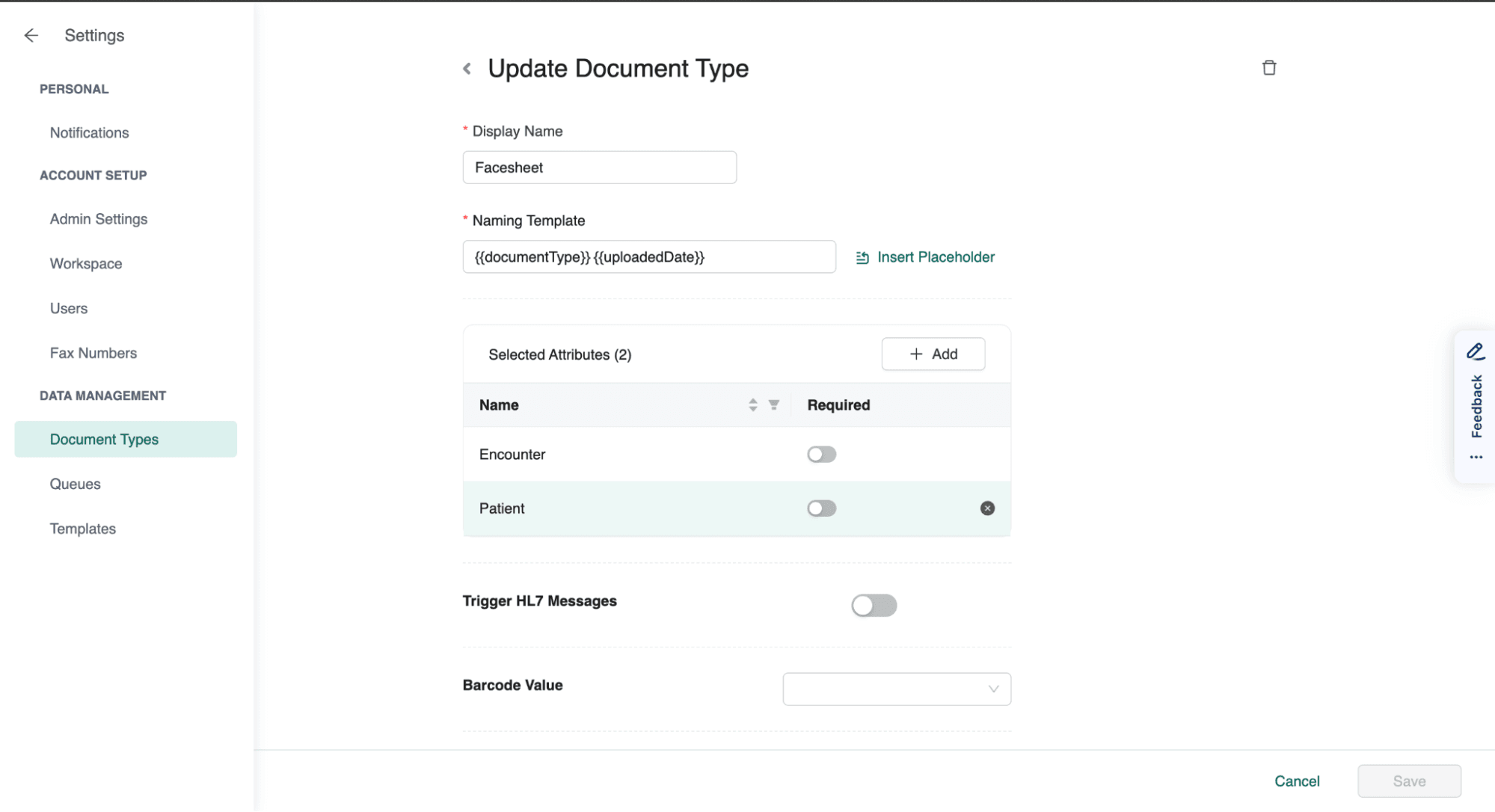
Image 3: You can update a document type, decide if HL7 messages should be triggered, and select related attributes.
Dexit also eliminates the need for extensive scripting knowledge and empowers users to adjust their system workflows with minimal effort, resulting in unparalleled system flexibility.
Dexit’s flexibility extends beyond basic system customization. Its robust rules engine enables users to automate their organization’s information flow seamlessly. Specific rules can be set to move batches to designated queues based on factors such as the scanner used, inbound fax number, and other criteria. This not only expedites the document management process but also minimizes the need for manual interventions. With pre-set rules, Dexit ensures that information flows effortlessly within your organization, optimizing efficiency.
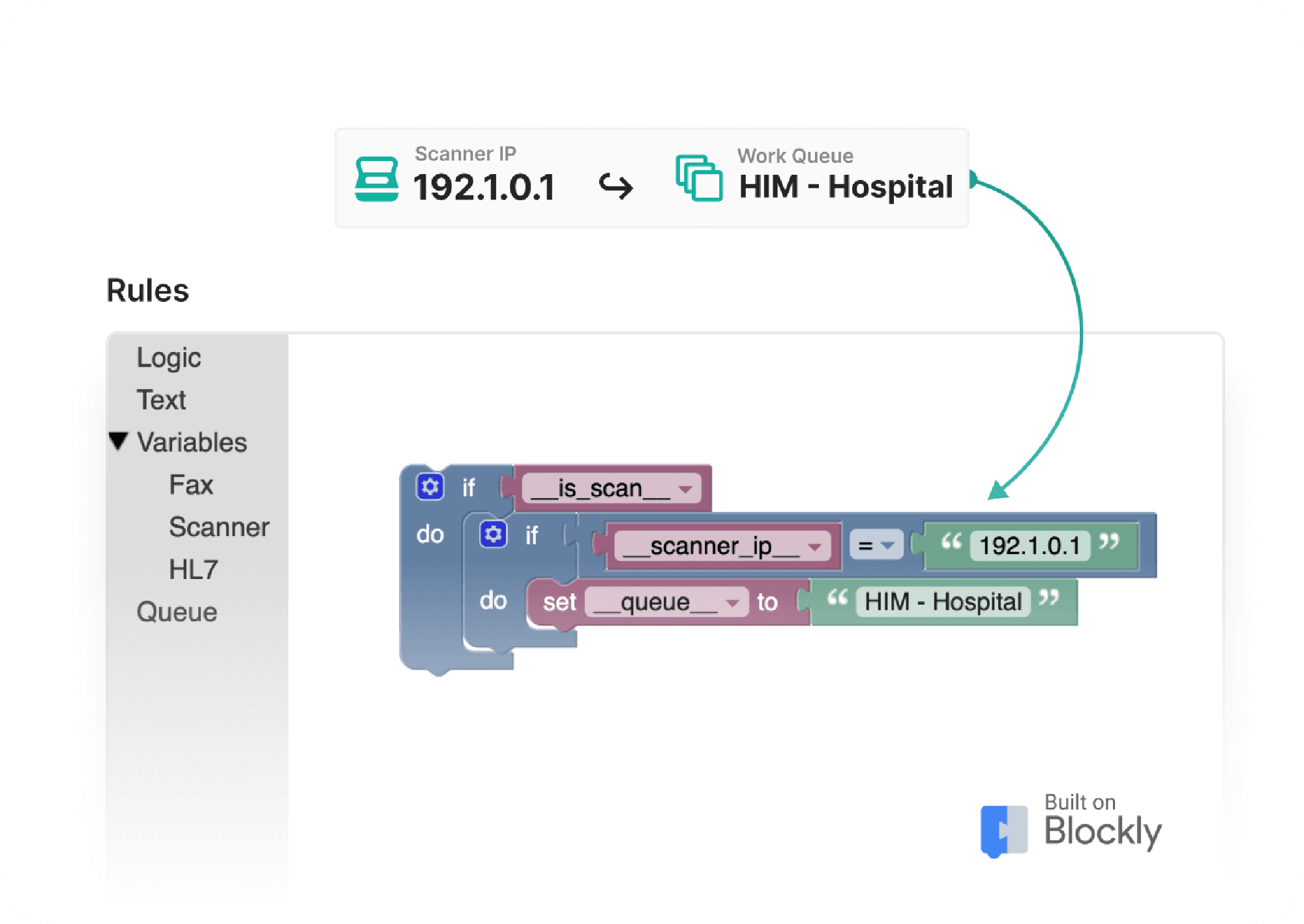
Image 4: Dexit's rules engine lets you assign batches to queues based on the scanner, fax number, and other criteria.
Dexit sets new standards as a healthcare document management software. With Dexit, the focus shifts from adapting the system to fit the software to tailoring the software to fit your system. As HIM leaders seek agile solutions to enhance healthcare document management productivity, Dexit rises above others in the market, providing a customizable document management experience that aligns seamlessly with the unique needs of the organization.
Join over 3,200 subscribers and keep up-to-date with the latest innovations & best practices in Healthcare IT.

The advent of Artificial Intelligence (AI) has signaled a revolutionary shift across various sectors, with the …

Managing healthcare documents efficiently is essential for maintaining accurate patient records and enhancing …

According to research, almost 30% of the world’s data volume is generated by the healthcare industry. …